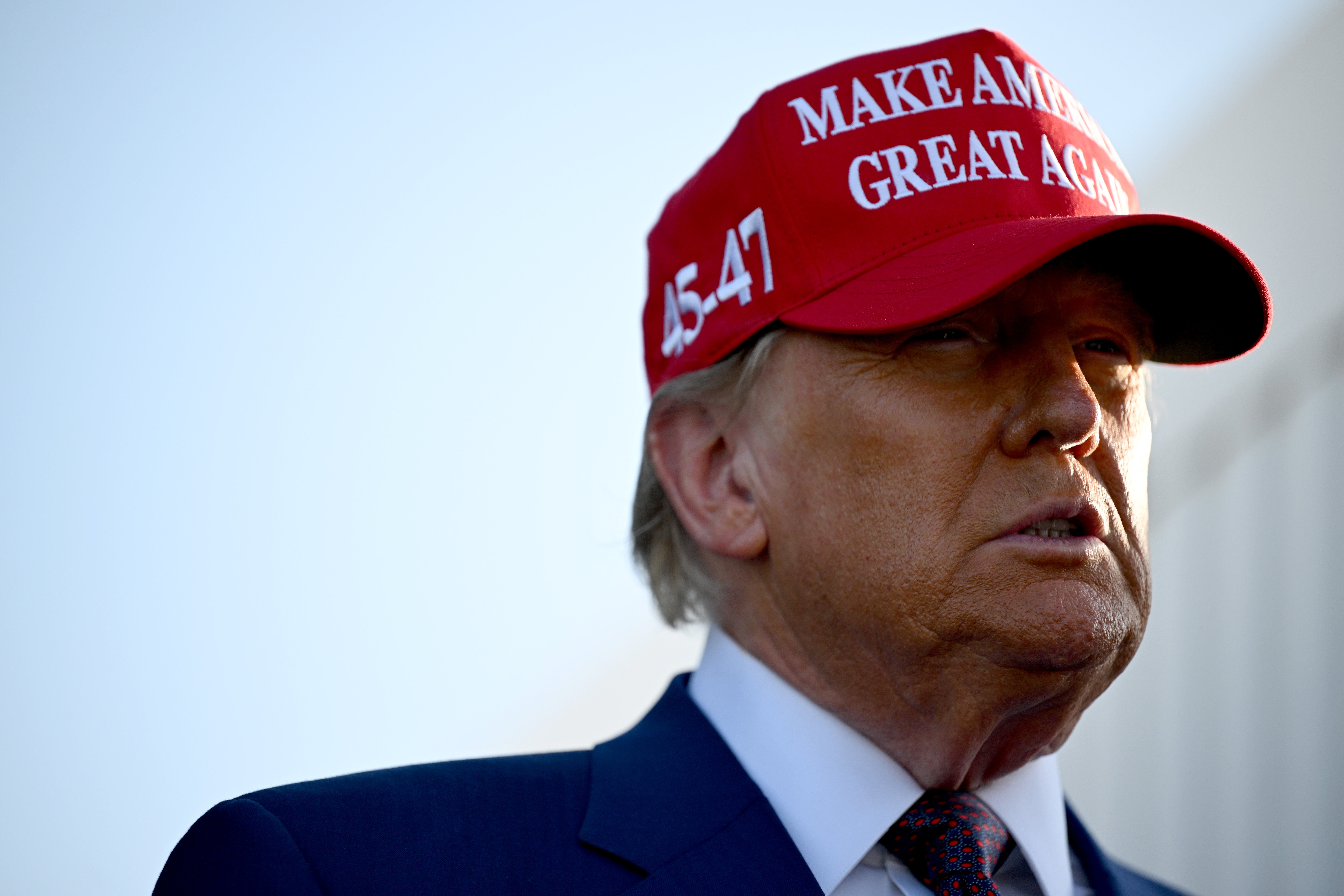Wall Street doesn’t buy Trump vows on immigration, cost cuts
Investors also have doubts that Elon Musk will severely cut government spending
Your support helps us to tell the story
From reproductive rights to climate change to Big Tech, The Independent is on the ground when the story is developing. Whether it's investigating the financials of Elon Musk's pro-Trump PAC or producing our latest documentary, 'The A Word', which shines a light on the American women fighting for reproductive rights, we know how important it is to parse out the facts from the messaging.
At such a critical moment in US history, we need reporters on the ground. Your donation allows us to keep sending journalists to speak to both sides of the story.
The Independent is trusted by Americans across the entire political spectrum. And unlike many other quality news outlets, we choose not to lock Americans out of our reporting and analysis with paywalls. We believe quality journalism should be available to everyone, paid for by those who can afford it.
Your support makes all the difference.Wall Street doesn’t believe President-elect Donald Trump’s promises of mass deportations of undocumented immigrants, according to a new poll.
Goldman Sachs shared a survey Sunday showing that while investors believe that immigration will slow during Trump’s second administration, only six percent of investors think that net migration — the difference between the number of people entering versus leaving — will become negative.
Wall Street appears to be assuming that regardless of Trump’s planned crackdown, more people will come into the country than are removed from it. Business owners have warned that mass deportations could shrink their workforces and mean higher prices. Industries like farming and construction could take an especially hard economic hit.
But the Trump administration’s efforts to deport millions of people will likely be slowed down by drawn-out legal processes and logistical issues.
Almost half of the investors surveyed think that annual immigration will hit an average of between 500,000 and one million during a second Trump term, according to CNN. The most recent annualized rate stood at about 1.75 million with a peak of about three million in 2023.
Goldman Sachs found in its survey that more than 20 percent of investors think that immigration numbers during a second Trump term will be higher than before the pandemic, when they were about one million a year.
“Our forecast is only moderately below the pre-pandemic trend because there are legal and logistical limits to executive action,” the bank’s economists wrote in a report.

The president can directly control some aspects of immigration via executive actions, but those lack the scope and permanence of new laws. While Republicans will be in charge of both the House and the Senate next year, their majorities are narrow and that will make it hard to pass new legislation on divisive issues like immigration.
There are also doubts among investors regarding Elon Musk’s claims that he will severely cut government spending. Trump has directed Musk and former Republican presidential candidate Vivek Ramaswamy to lead the Department of Government Efficiency (DOGE), a non-governmental group that will work on dismantling bureaucracy and cutting waste.
Only about 10 percent of investors think the commission will be able to reduce spending by more than $400 billion annually, while almost 10 percent think that Musk and Ramaswamy will be able to cut spending by between $200 billion and $400 billion.
Musk, meanwhile, has suggested that he thinks that he will be able to cut at least $2 trillion from the $6.5 trillion budget. But as many as 42 percent of investors said they think the cuts will be insignificant or modest, according to Goldman Sachs.
Experts have noted that it would be very difficult to find $2 trillion to cut without slashing Social Security, defense spending, or getting into interest payments.
Last month, former Treasury Secretary Larry Summers said Musk should consider himself lucky to find $200 billion worth of cuts. At the same event at the Economic Club of New York, former George W Bush adviser Glenn Hubbard said that “it’s just mathematically impossible to find $2 trillion.”
In the Goldman Sachs survey, new tariffs were the top worry for investors, with 60 percent selecting their effect on inflation, economic growth, and stocks when asked about what policy worries them most ahead of 2025.
Twenty percent said their top worry was the risk that tax and spending would lead to concerns about fiscal sustainability as well as the inflationary effects of possible deportations.

Join our commenting forum
Join thought-provoking conversations, follow other Independent readers and see their replies
Comments